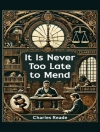In ‚Love, the Fiddler, ‚ Lloyd Osbourne crafts a richly textured narrative that delves into the complexities of love, longing, and the vagaries of human connection. Set against a backdrop of vibrant characters and evocative settings, Osbourne employs a blend of lyrical prose and realistic dialogue, immersing readers in a world that oscillates between poetic reverie and the rawness of everyday life. This novel not only reflects the cultural tensions of its time but also resonates with universal themes of passion and betrayal, making it a significant journey through the landscape of human emotion. Lloyd Osbourne, an accomplished writer and the stepson of famed author Robert Louis Stevenson, draws on his literary heritage and personal experiences to infuse authenticity into his narratives. His exposure to the literary salons of the late 19th century and his travels undoubtedly shaped his perception of love and relationships, which critically informs the character development and thematic depth within ‚Love, the Fiddler.‘ This title reveals Osbourne’s unique voice in the literary tapestry of his era, emphasizing his ability to capture the soulful essence of love. This remarkable novel is a must-read for those interested in the exploration of emotional intricacies and interpersonal dynamics. Osbourne’s adept storytelling invites readers to reflect on their own experiences of love and connection. Whether you are a lover of classic literature or a seeker of lyrical narratives, ‚Love, the Fiddler‘ promises to leave an indelible mark on your heart.
Über den Autor
Lloyd Osbourne (1868–1947) was an American author known for his association with his stepfather, the esteemed Scottish writer Robert Louis Stevenson. Born Samuel Lloyd Osbourne in San Francisco, he was the son of Stevenson’s future wife, Fanny Van de Grift Osbourne. His early exposure to literature came through Stevenson’s mentorship, and together, they would co-author works such as ‚The Wrong Box‘ (1889) and ‚The Wrecker‘ (1892). Osbourne’s own merit as a writer took shape in the early 20th century, with pieces that often mirrored the adventure and vivid characterization of Stevenson’s style. ‚Love, the Fiddler‘ (1901) stands out as one of Osbourne’s notable solo works — a collection of short stories that delves into themes of love, life’s ironies, and the quirks of fate. Osbourne’s literary contributions, though overshadowed by his stepfather’s legacy, remain a testament to the captivating storytelling of the era. His narrative craft reflects the influences of his experiences and travels with Stevenson, yet showcases his unique ability to captivate audiences in his right, through the charm of his prose and his keen observation of human nature.












